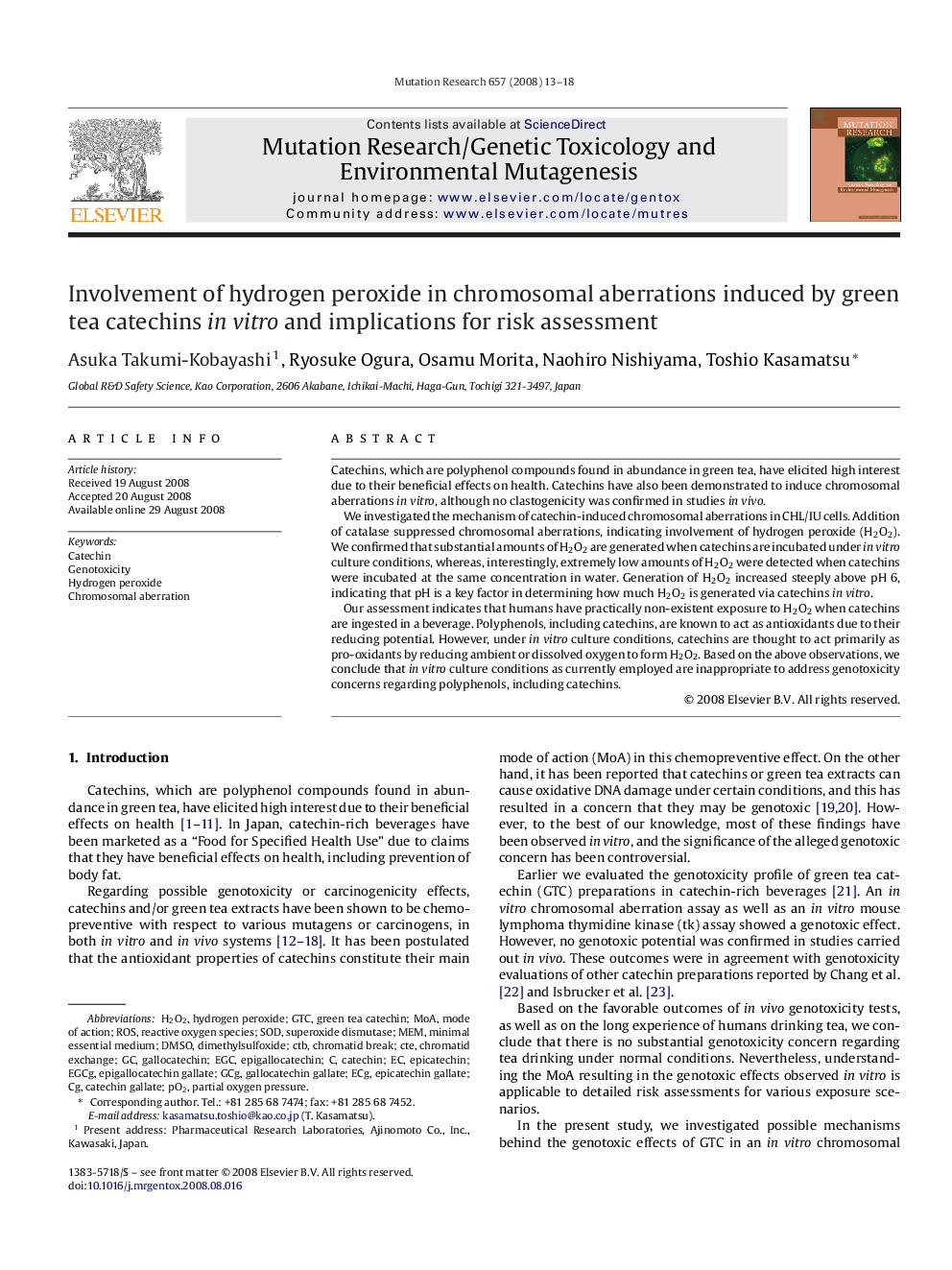| Article ID | Journal | Published Year | Pages | File Type |
|---|---|---|---|---|
| 2148884 | Mutation Research/Genetic Toxicology and Environmental Mutagenesis | 2008 | 6 Pages |
Catechins, which are polyphenol compounds found in abundance in green tea, have elicited high interest due to their beneficial effects on health. Catechins have also been demonstrated to induce chromosomal aberrations in vitro, although no clastogenicity was confirmed in studies in vivo.We investigated the mechanism of catechin-induced chromosomal aberrations in CHL/IU cells. Addition of catalase suppressed chromosomal aberrations, indicating involvement of hydrogen peroxide (H2O2). We confirmed that substantial amounts of H2O2 are generated when catechins are incubated under in vitro culture conditions, whereas, interestingly, extremely low amounts of H2O2 were detected when catechins were incubated at the same concentration in water. Generation of H2O2 increased steeply above pH 6, indicating that pH is a key factor in determining how much H2O2 is generated via catechins in vitro.Our assessment indicates that humans have practically non-existent exposure to H2O2 when catechins are ingested in a beverage. Polyphenols, including catechins, are known to act as antioxidants due to their reducing potential. However, under in vitro culture conditions, catechins are thought to act primarily as pro-oxidants by reducing ambient or dissolved oxygen to form H2O2. Based on the above observations, we conclude that in vitro culture conditions as currently employed are inappropriate to address genotoxicity concerns regarding polyphenols, including catechins.
